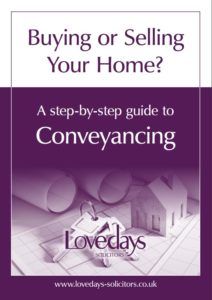- You & Your Family
- Your Job
- Family Law
- Divorce and Separation
- Finances on Divorce
- Dissolution of Civil Partnership
- Separation
- Cohabitation Agreements
- Finances on Breakdown of Cohabitation Relationship
- Prenuptial Agreements
- Grandparents' Rights
- Step-Parents' Rights
- Child Maintenance
- Parental Responsibility
- Paternity Disputes
- Buying Property Jointly
- Probate
- Wills
- Your Property
- Conveyancing
- Partnerships
- Disputes
- Boundary Disputes
- Dealing with Rent Arrears
- Japanese Knotweed Claims
- Landlord and Tenant Disputes
- Landlord Harassment & Illegal Eviction
- Negligence Claims Against Builders & Developers
- New Build Property Disputes
- Noisy Neighbour Disputes
- Personal Debt Collection
- Property Misrepresentations Claims
- Rights of Way Disputes
- Section 21 No Fault Evictions
- TOLOTA Claims
- Tree & Hedge Neighbour Disputes
- Your Business
- About Us
Land Development: Overage, Conditional Contracts, and Promotion Agreements
When you own land, you may want to sell it so that it can be developed for commercial, residential or industrial use, however, there are a number of legalities that you need to face in regard to how this works and whether there are any conditions on how the land can be developed.
This is particularly important in the world of agriculture where there is often the need or desire to change the use of an area of land and planning permission needs to be obtained. There are many factors affecting how agricultural land can be used, and so it is important to be aware of the legalities that apply.
There are different ways that you can sell your land to a developer, so it is important to explore each one to be able to decide which one will work for you. There are overage agreements, conditional contracts and promotion agreements, which all require different levels of work, expense and risk.
At Lovedays Solicitors, we have a lot of expertise in agricultural law and can advise you on all of the legalities relating to any proposed land development. We can help you to decide which path to take depending on your own individual circumstances, and can help to draft any subsequent agreements, ensuring that it all runs smoothly and without any surprises further down the line.
{quote}
Understanding Overage Agreements
When developing land, you are likely to have goals and timescales in mind. That is why overage agreements are often brought in as part of the process.
An overage agreement allows the seller to be paid extra if the specified events happen within a particular timescale. This could include the development of the land happening within a certain time period after the land has been sold which then significantly increases the value of the land.
Whilst each overage agreement is unique to the individual situation; they usually involve an additional payment on top of the purchase price which is paid when planning permission is granted.
An overage clause can also be included in the sale agreement of a commercial property of land, to give the seller a greater share of the value when the trigger event occurs. Trigger events can take many forms, but they are most commonly associated with the granting of planning consent, the implementation of a development, or the completion of one.
Calculating overage can be a tricky process, so it is important to seek professional advice. As part of the calculations the buyer will not expect inflation to be included and will also want to deduct any costs that they might have incurred in the process. It can also be difficult to work out if it is part of a larger development.
These overage agreements can be particularly important to agricultural landowners. Obtaining planning permission can be a long, arduous and expensive task which many farmers are reticent to undertake. This can mean that they miss out on the full value that the sale of their land is able to achieve. Overage agreements ensure that they do not lose out and can still benefit from the added value without needing to undergo any of the hard work.
Exploring Conditional Contracts
A conditional contract is designed to include a specified condition that once met, must be completed by the developer. This is often related to vacant possession of the site or obtaining planning permission.
These conditions are put into place to ensure that the land is suitable for the needs of the developer before they commit to spending money on it. They can therefore go through the process of trying to obtain planning permission for the land without having to risk spending money on it first but knowing that it is secure should all things go to plan.
It is important that the terms of the condition are clear, and that all parties know what is required to achieve them and what will happen once they have been reached. The developer may want to include their own conditions which could lead to them claiming that the planning permission that they were granted was not suitable and enables them to walk away from the deal.
As the landowner, it can be beneficial to make the terms of the condition as broad as possible. This is because the contract will be deemed to be unconditional as soon as the condition has been met, and the developer will be bound to complete the purchase of the land as per the terms of the agreement.
It is essential that a conditional contract is written properly, to ensure that all parties are treated fairly. Any conditions must be clear and achievable, and all parties must have agreed on the process that will occur once the conditions have been met. This means that it will be legally binding, and the developer will be held to their agreement if the conditions are met.
{quote}
The Mechanics of Promotion Agreements
Sometimes an agreement can be put in place between a landowner and a land promoter which enables the landowner to benefit from the promoter's experience and resources. This can help to achieve certain things such obtaining planning permission for development on the land which can then significantly increase its value.
A land promotion agreement will usually outline the requirements for a promoter to apply for planning permission on the land and market it for sale once this has been achieved. It is typical for the promoter to pay a financial premium to enter into the agreement, and they will fund the planning promotion and marketing costs out of their own pockets. However, if they fail to achieve the terms of the agreement, it will then be terminated and the premium and costs that have been incurred will not be reimbursed.
The land promotion agreement will also state that once the planning application has been successful and the property has been sold then the landowner will be responsible for reimbursing the premium and the costs from the gross sale receipts and will pay a fee to the promoter, which is usually a percentage of the net sales receipts.
This tends to be a popular choice for many agricultural landowners, as it allows them to minimise their risk and maximise their gains. As the promoter uses their own funds to achieve the aims of the agreement, and risks not being reimbursed if they are unsuccessful, then they are incentivised to achieve what they have set out to do. The landowner can make use of their knowledge and experience to achieve things that they might not otherwise be able to do and can therefore save them considerable time and money.
A promotion agreement needs a lot of professional attention in order to get it right. It is important to be clear in all of the conditions of the agreement so that both parties know what needs to be achieved and the timescales for doing this, so that they can then determine whether the promoter has been successful.
It also helps to outline the payment that the promoter can expect to receive on completion of the sale and means that it is much easier for everyone to plan. By having your promotion agreement drafted by Lovedays Solicitors, you can be sure that it is not only in-depth and correct but also legally binding.
Strategic Considerations for Farmers
When entering into any kind of land development contract, it is important for farmers to consider all of the options that are open to them in order to determine what will be best for them. Factors such as planning permission are very important aspects of all land sales, and so you need to think carefully about what value this adds to your land, and how you can best achieve it.
It is important to look at what overage agreements, conditional contracts and promotion agreements can work for you to achieve your aims. You also need to consider which ones will best protect your interests. The answers to these questions will be different for everyone, and so it is important that you weigh up your individual situation before committing to anything.
The experts at Lovedays Solicitors can take you through each option in detail and can help you to decide which type of agreement will serve you best. We will use our years of experience in agricultural law to identify how you should proceed, what will bring you the best returns and how to work within any timescales that you may have in mind.
This professional legal advice can be very important, as it can prevent you from making costly mistakes or entering into agreements that are not beneficial to you.
- Factors farmers should consider when entering land development contracts.
- How to protect interests in overage, conditional contracts, and promotion agreements.
- The role of legal advice in land development deals.
{quote}
Lovedays Solicitors: Your Partner in Land Development
We have spent years building up a professional team, with specialists in agricultural law and land development. Lovedays Solicitors have built up a great reputation throughout Derbyshire for our knowledge and expertise, as well as professionalism and friendly staff members.
We can advise on all types of overage agreements, conditional contracts and promotion agreements, helping you to reach the best conclusions for your own personal situation. We will help you through every step of the process and can offer you informed and correct legal information throughout. We are always on hand to answer your questions and deal with other parties on your behalf, before drafting whichever agreement you have decided works best for you.
At Lovedays Solicitors, we understand how important the sale of land for development can be to your personal interests as well as your business ones and so we will make sure that you receive the best possible legal advice at every turn.
Conclusion
All land and property agreements need specialist legal advice but this is particularly important in the case of land development. It can be a very technical area with a number of different situations that need to be carefully navigated, and you can do this with the expert legal advice available from Lovedays Solicitors. We understand how challenging the agricultural world can be, and so we are committed to supporting farmers and landowners to get the best advice possible, enabling them to maximise what they have available. We provide expert legal guidance and a friendly face to make the process as easy as possible for you.
{quote}
The overage period is the length of time during which the payment will become payable if the trigger event occurs. The overage period can vary depending on the individual circumstances but can last anything from a few years to a few decades, so it is important to make the deadline realistic.
It is important to stipulate exactly what the rules for the conditional contract will be, to try and avoid reaching a point where either party tries to pull out. The contract should also cover whether there is a right to refusal or appeal.
Land promoters will risk their own money to achieve the required planning permission and sale, and they will expect to be reimbursed for all of their expenses. They will also take a share of the profits received from the sale, the percentage of which will need to be agreed based on your individual circumstances. It is best to get professional legal advice on this to ensure that it is a fair amount.
Get Support Today
When planning to sell your land for development, it's crucial to navigate the legal complexities, especially in agriculture. Lovedays Solicitors specialise in agricultural law and can guide you through choosing the best method—be it overage agreements, conditional contracts, or promotion agreements. Our expertise ensures that your land's development is legally sound and tailored to your specific needs, maximising its potential efficiently and effectively.

Free Guide
If you don’t know your leasehold from your freehold, then get our Free Conveyancing Guide. It contains details about the steps you will need to take with any property transactions. The Guide giving you detailed guidance on what your lawyer will be doing for you and what to look out for.


Lovedays Solicitors, Brooke-Taylors Solicitors, Potter and Co Solicitors and Andrew Macbeth Cash and Co Solicitors are the trading names of Derbyshire Legal Services Limited which is a company registered in England and Wales under company number 08838592. Registered office Sherwood House, 1 Snitterton Road, Matlock, Derbyshire, DE4 3LZ.
Authorised and Regulated by the Solicitors Regulation Authority under SRA ID number 637916.
-
01629 56660
-
This email address is being protected from spambots. You need JavaScript enabled to view it. -
Sherwood House
1 Snitterton Road
Matlock
Derbyshire
DE4 3LZ
© Copyright 2019 Derbyshire Legal Services Limited | Website by WebWorks